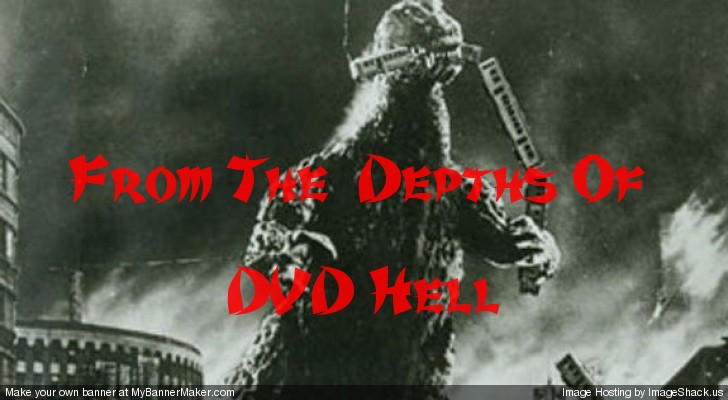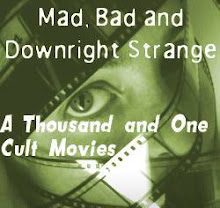Title: God Bless America
Director: Bobcat Goldthwait
Released: 2011
Starring: Joel Murray, Tara Lynne
Barr, Mackenzie Brooke Smith, Melinda Page Hamilton, Rich McDonald, Regan
Burns, Aris Alvarado, Maddie Hasson, Geoff Pierson, Larry Miller, Dorie Barton
Plot: Frank (Murray) a middle-aged
insurance salesman has become deluded by the current state of the world around
him, which causes him to suffer from insomnia and chronic migraines. However upon
being diagnosed with an inoperable brain tumour, he soon finds himself on a
quest to rid the world of those he sees as being the cause of its problems,
while at the same time finding an unlikely accomplice in the 16 year old Roxy
(Bar)
Review: While most might know Bobcat Goldthwait as the
bio-polar and manical voiced Zed in “Police Academy” he has in recent years
really carved out a niche for himself as a director with this film forming the
final part of an unofficial trilogy of dark humoured comedies, which in many
ways has helped to fill the bad taste void left by John Waters while we
continue to wait for the long proposed “Fruitcake”.Here Goldthwait taps in the
general annoyance of the population which now faces an almost continual
bombardment of trashy reality TV shows, rudeness and those people whose general
stupidity makes you wonder how they manage to make it through general day to
day living. These are just a few of the irritancies that Goldthwait takes aim
at, as he gives us essentially a funnier and certainly more violent version of
“Falling Down”.
When we first meet Frank we are treated to what must be one
of his daily violent fantasies, which on this occasion is how he would like to
deal with his annoying next door neighbours in a scene which serves as a
warning of things to come especially when the fantasy consists of violently
dispatching of said neighbours via pump action shotgun. However Frank is not a
psychopath but rather a guy who’s finally reached his breaking point, as he
finds himself forced to work in cubicle hell while his fellow employees embrace
all the things he sees as being things which will lead to the breakdown of
society. A view point we see him trying to explain to one colleague who
misguidedly feels that he should try and be more cheerful. Of course things
only get worse when he finds himself fired for harassment after he tried to
send flowers to a receptionist he had a crush on, while his issues are only
added to by his terminal diagnosis given to him by his doctor who seems to care
more about the car he’s buying than the sensitive news he’s supposed to be
delivering.
So what starts with a simple plan to kill a “Super Sweet
Sixteen” brat whose tantrum over her father buying her the wrong car on the
show sparks the idea in Frank in the first place, it soon becomes clear that
Frank is anything but a natural killer, especially when his plans quickly and
hilariously fall apart. It’s this first death that also introduces him to Roxy
who is fascinated by Frank while at the same time proposing he abandon his
original suicide plans to instead embark on a murderous road trip.
Frank and Roxy despite having a noticeable age gap the pair
with their shared world view they make for a great pairing especially when Roxy
comes off mature for her age, while being quick to blast “Juno” and Diablo
Cody’s view of how hip teenagers are portrayed. Goldthwait also ensures that he
plays up on the warped comedic potential caused by the age gap, with Frank
worrying about the paedophile connotations of their unusual friendship so much
so that her simple request to be reassured that she is pretty throws him into a
blind panic. Still their Bonnie and Clyde style relationship is frequently
played up including several on the nose references, while best described by
Roxy when she bemoans them as being “Plutonic spree killers”. Together this pair makes for a surprisingly good team even
if they are frequently killing without any kind of fore planning and often when
the situations present themselves. Surprisingly though it would seem that the
local police are far from the most effective seeing how despite both Frank and
Roxy being caught clearly on CCTV they are never pursued at any point nor do
they ever attempt to hide their identity.
While the idea for the film could have quickly run out of
steam around the halfway point, especially when it really is the loosest of
plots which he hangs the film on, with the only real plot point revolving
around an “American Superstar” (the films version of “American Idol”) being
humiliated by the judges, only to turn into the freak of the week as those
horrible auditions have the tendency of doing. Somehow though Goldthwait
manages to make it all work, no doubt because of the believable friendship
between Frank and Roxy which goes beyond their love of killing annoying people,
especially when they share a number of touching sequences such as the impromptu
teddy bear target practice session or during the finale when the two reunite.
Unquestionably this is a comedy painted in only the darkest
shades, meaning that it might not sit with some but for those like myself in possession of a slightly warped sense of humour this is a film which manages to balance moments of sweetness with pitch black humour, even if the message of shooting those who don't fit in with your world view is slightly questionable, it frequently is more on target than it is off.



























